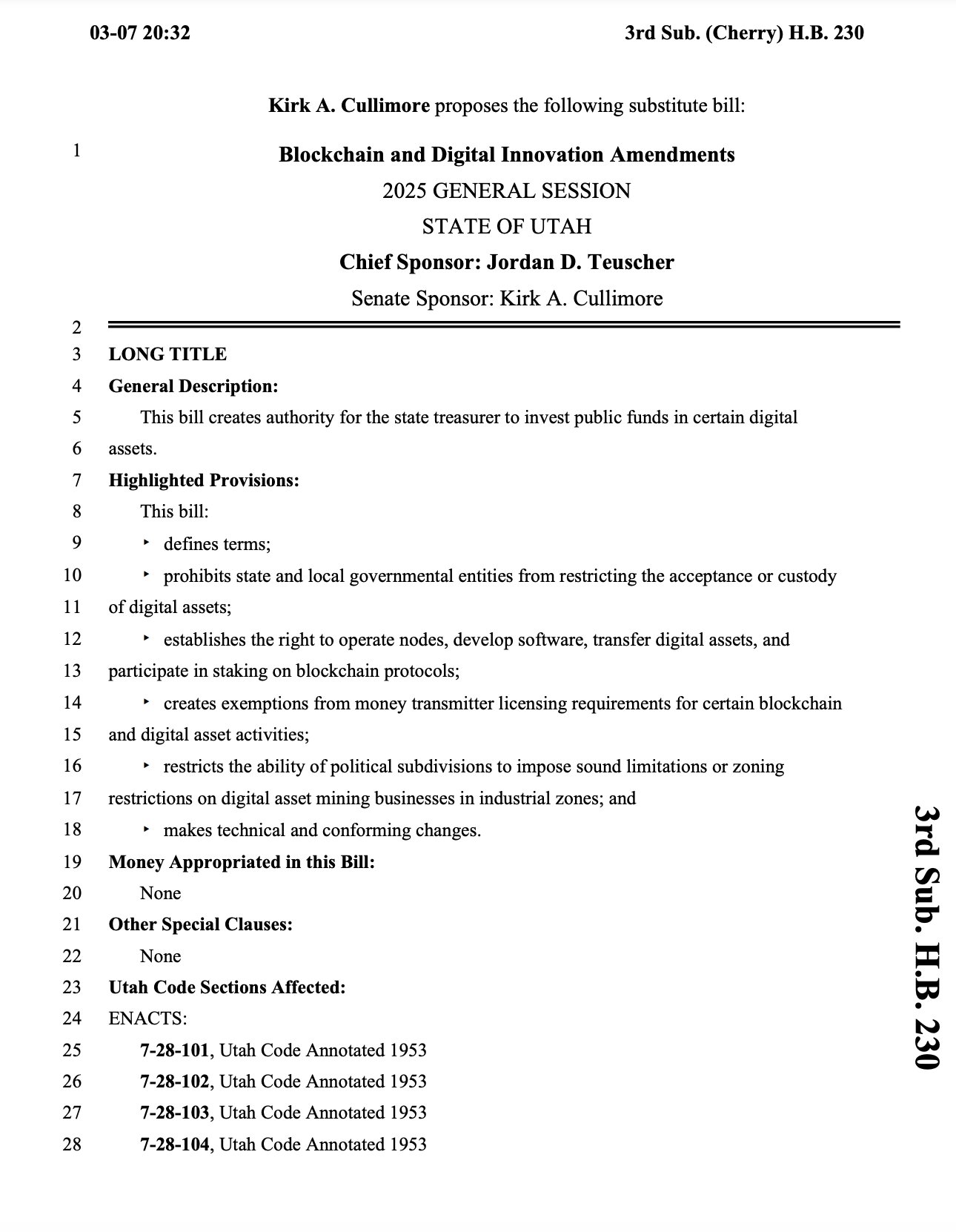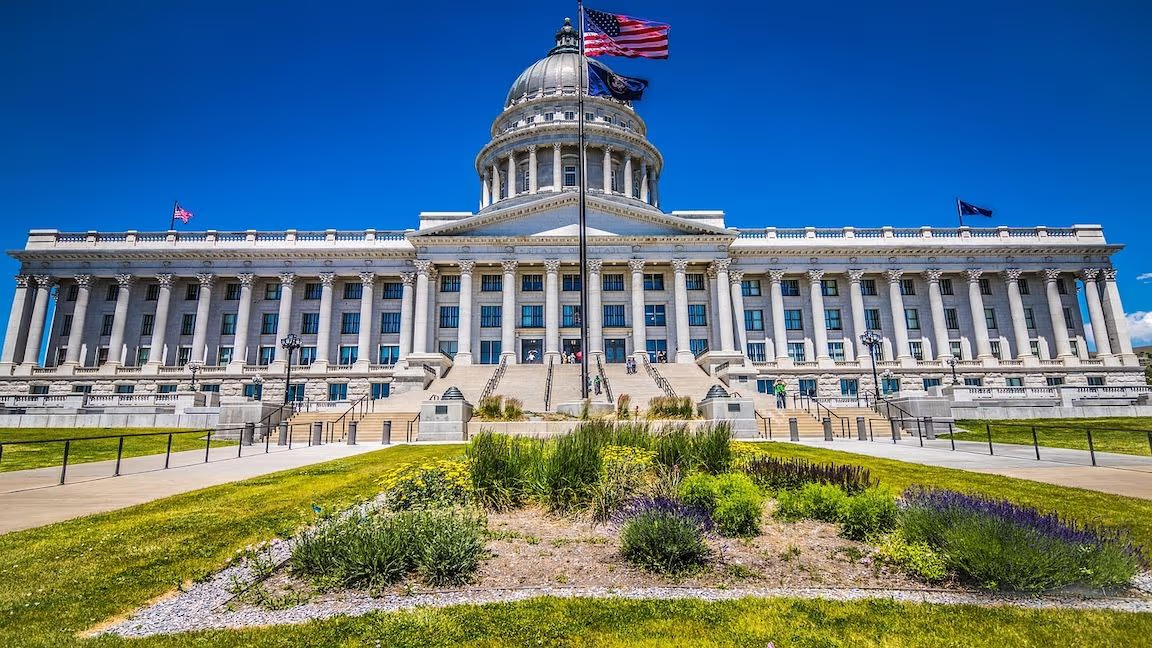- Utah’s Bitcoin bill passed the Senate but removed the provision allowing the state to hold Bitcoin in reserve.
- Similar Bitcoin reserve bills in Arizona and Texas are now the closest to becoming law.
- President Donald Trump signed an executive order to create a national Strategic Bitcoin Reserve.
Utah’s Bitcoin bill has passed the state Senate, but a key provision allowing the state to hold Bitcoin in its own reserve was removed. The bill, known as HB230, originally included a clause permitting the state treasurer to invest up to 5% of state funds in digital assets with a market cap above $500 billion.
Currently, only Bitcoin meets this requirement. But this section of the bill was struck in the third reading, with the House approving the amendment by a 52-19-4 vote.

Bitcoin Rights and Legislative Changes
Utah’s bill now primarily aims to safeguard the citizens’ rights to hold digital assets, mine Bitcoin, operate nodes, and engage in staking. It passed through the Senate on March 7 with a vote of 19-7-3 and currently awaits the governor’s signature to be enacted into law.
According to Senator Kirk A. Cullimore, fears of early adoption prompted the elimination of the reserve provision for Bitcoin.
Prior to this shift, Utah appeared ready to become the first U.S. state with a Bitcoin reserve. Today, comparable bills in Arizona and Texas are the nearest to passage. Both have passed Senate committees and wait for final votes.
Nationwide, 31 states have introduced bills regarding Bitcoin reserves, with 25 remaining active. Other states, including Illinois, Iowa, Kentucky, and Ohio, retain live proposals, while others like Pennsylvania and Montana have had their bills die.
National-Level Bitcoin Adoption
Simultaneously, on a national level, American President Donald Trump signed an executive order directing the formation of a national Strategic Bitcoin Reserve. Its initial Bitcoins would be obtained from proceeds recovered from criminal forfeiture actions, and secretaries from the Treasury and Commerce departments were entrusted with establishing methods of securing more Bitcoins without escalating government expenses. This comes as American policymakers show more interest in Bitcoin, even though state-level adoption has been slow.



